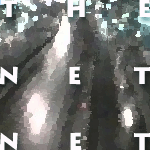Published near-simultaneously, Smokescreen and The Cigarette Papers are dramatically different approaches to the same basic piece of news: the leak of several thousand pages of internal documents -- which arrived anonymously in Dr. Stanton Glantz's office in 1994 -- taken from the files of major cigarette manufacturer Brown & Williamson. We knew the tobacco companies were sleazy, lying merchants of death, but as Dr. C. Everett Koop remarks in his preface to the The Cigarette Papers, "the tobacco industry was even more cynical than even I had previously dared believe."
The Cigarette Papers is an expansion of a series of papers,
offering excerpts from and analyses of the leaked documents themselves,
published by Dr. Glantz and his team in the Journal
of the American Medical Association. Glantz's team has made
the documents available at the
Digital Library of the University of California, San Francisco Tobacco
Control Archives. Smokescreen is a swashbuckling tale
of corporate intrigue and journalistic tenacity, told by a reporter
-- also a fellow at Harvard's School of Public Health -- who covered
the leak and the Congressional hearings of 1994.
The Cigarette Papers is careful and methodical, written in a measured tone that is clearly meant to allow the reader to share in the investigative team's wide-eyed wonder at just how much the tobacco companies knew and just how long ago they knew it. It discusses the history of the tobacco industry's public posture on the health issues surrounding cigarettes and goes on to use the leaked documents and others submitted in the course of the 1994 hearings to analyze the private postures of the companies themselves.
The Cigarette Papers carefully documents tobacco industry initiatives, from the industry's 1954 "Frank Statement to Cigarette Smokers" through the "Tar Derby" of the 1960s and into today's combination of pure public relations stonewalling and legal hardball. It intersperses these discussions with page after page of documentation of the tobacco companies' cooperation to develop highly sophisticated knowledge about the pharmacology of nicotine and the carcinogenicity of tobacco smoke in studies that were often ten years ahead of hostile experiments outside the industry. The Cigarette Papers amply demonstrates that the tobacco companies saw themselves as "in the nicotine-delivery business," actively seeking ways to create safer nicotine-delivery devices, and that they saw the pharmaceutical industry -- with its equally addictive but noncarcinogenic tranquilizers -- as a serious threat to their business.
The Cigarette Papers also seems to the divide the industry's history into two eras: one in which public relations sought to mediate a science-driven attempt to improve the cigarette as a product and a second in which lawyers controlled the scientific activities of cigarette companies. In the earlier phase, when the companies still felt they could "isolate" the damaging compounds in smoke and remove them, science sought to solve these problems while public relations efforts stalled the Surgeon General and general public. In the later phase, lawyers simply circled the wagons, controlling all company information about nicotine and other components of cigarettes and marking any and all relevant documents with "Attorney-Client Privilege" or "Attorney Work Product" in order to protect them from legal discovery processes.
Smokescreen does not take an especially analytical approach. Philip Hilts's book is more of a romp through the tobacco companies' latest scandal, complete with photographs from the Congressional hearings of heroic public officials, evil CEOs, a former employee who testified against Brown & Williamson, and the paralegal who leaked the documents. Smokescreen is a narrative, and Hilts is our intrepid reporter, letting us know that he stuck with this story for years and that he himself conducted interviews with insiders in which he got to ask the hard questions. It is a fun read, complete with both infuriating and entertaining quotes from the Congressional hearings and other sources.
Although it is not as voluminous and deliberate as The Cigarette Papers, readers of Smokescreen will find little that is completely new in the other book; they will simply find the information handled much more quietly and with considerably more reflection and information directly from the documents themselves. One exception: Smokescreen hits marketing to children a bit harder than The Cigarette Papers does.
For the most part, The Cigarette Papers and Smokescreen are not about the political issue of Smoking, although The Cigarette Papers devotes one chapter to the discussion of passive smoking. Both discuss nicotine in enough detail that the nonsmoking reader may feel a twinge of regret that this marvelous drug causes heart disease even when not delivered in lung-damaging smoke, and both acknowledge that smoking is complex public health problem, even discounting the tobacco industry's attempts to smear science in the service of profits.
But the true story in these books is hubris. The cigarette companies knew early on that they were fated to come under Federal regulation to some extent at some point, and they could not escape their destiny. The leaked documents show how they tried, at one point marrying their hopes for the future to designs for a truly safe cigarette, a device whose very existence would imply the dangers of its predecessors. What The Cigarette Papers and Smokescreen do show us is that even if the companies were more cynical than their most hostile detractors, and even if a Republican Congress stopped the Congressional hearings on tobacco just as they were getting interesting, there are now enough documents in the public domain to ensure that big tobacco will see its reversal of fortune one day.



